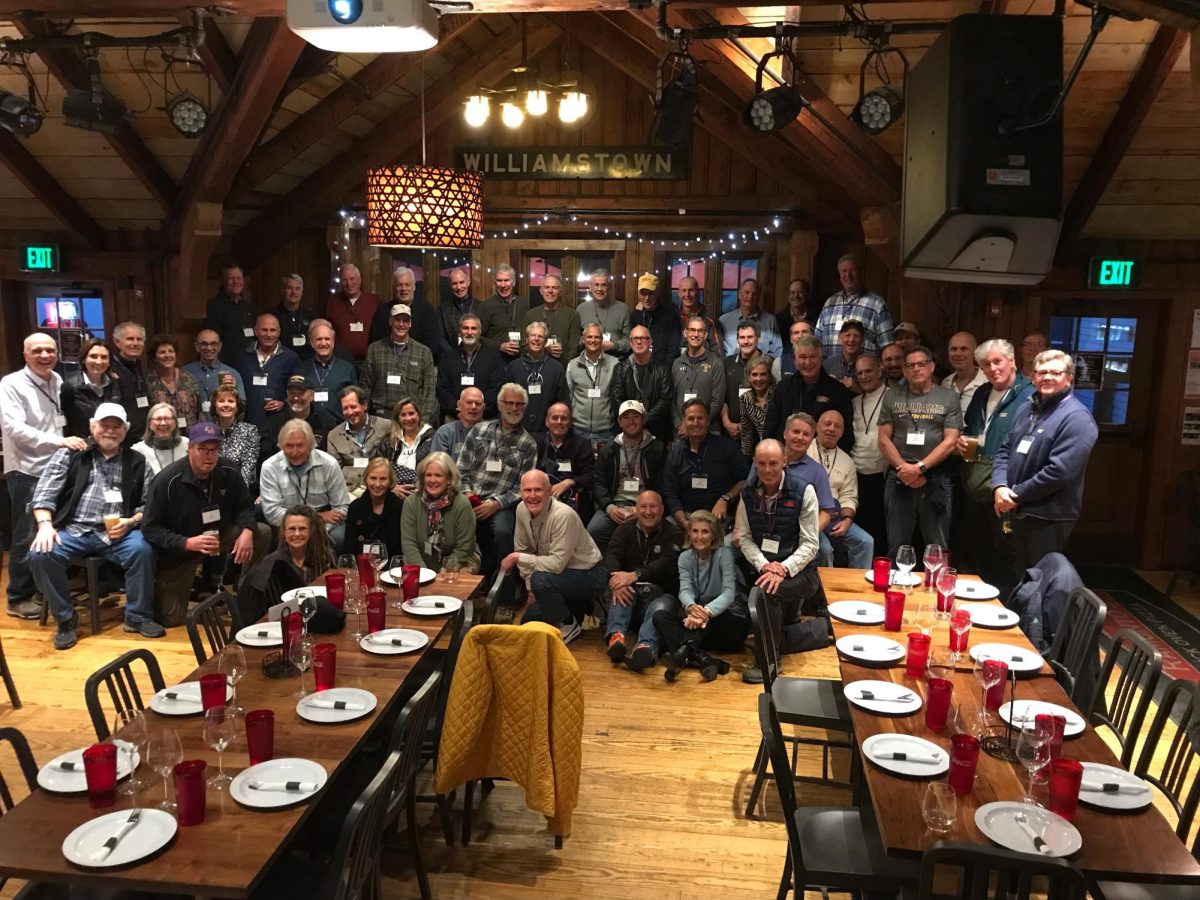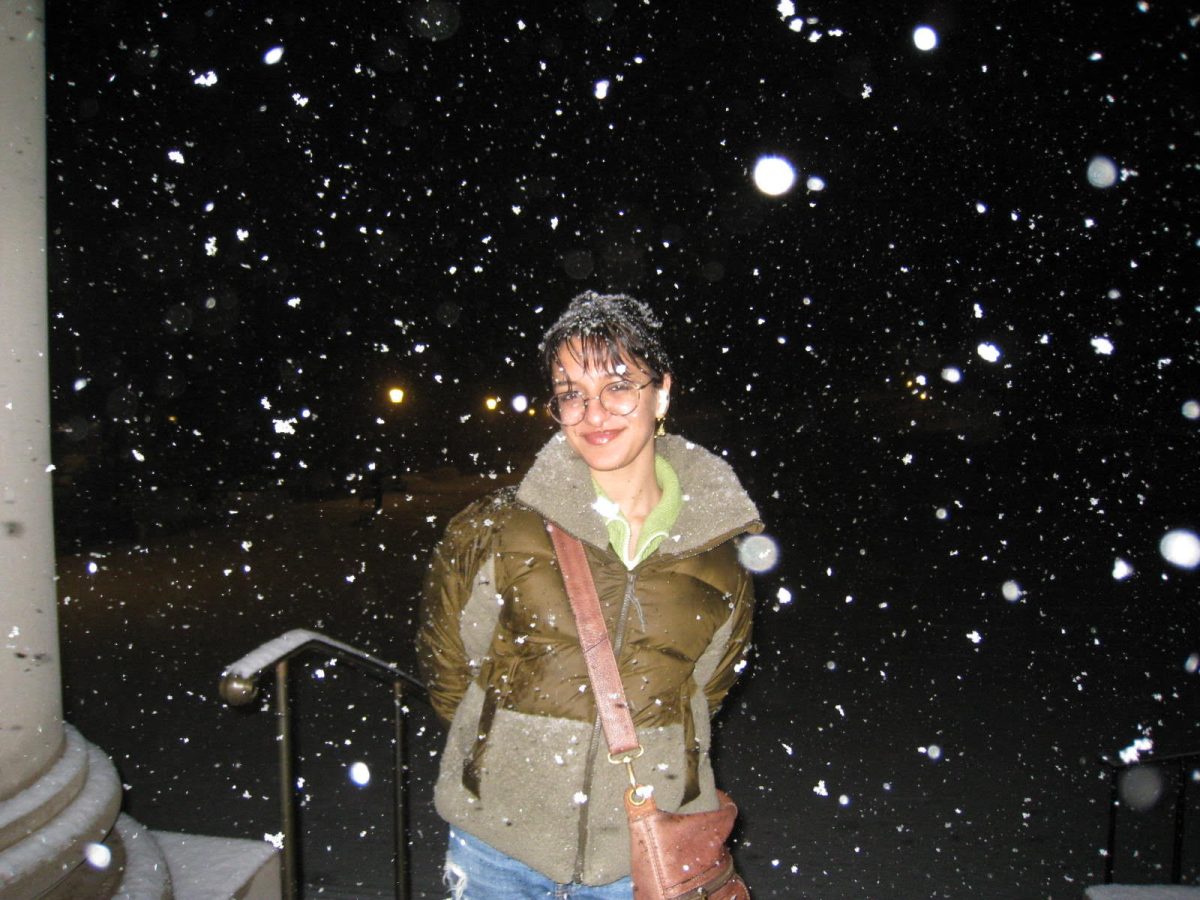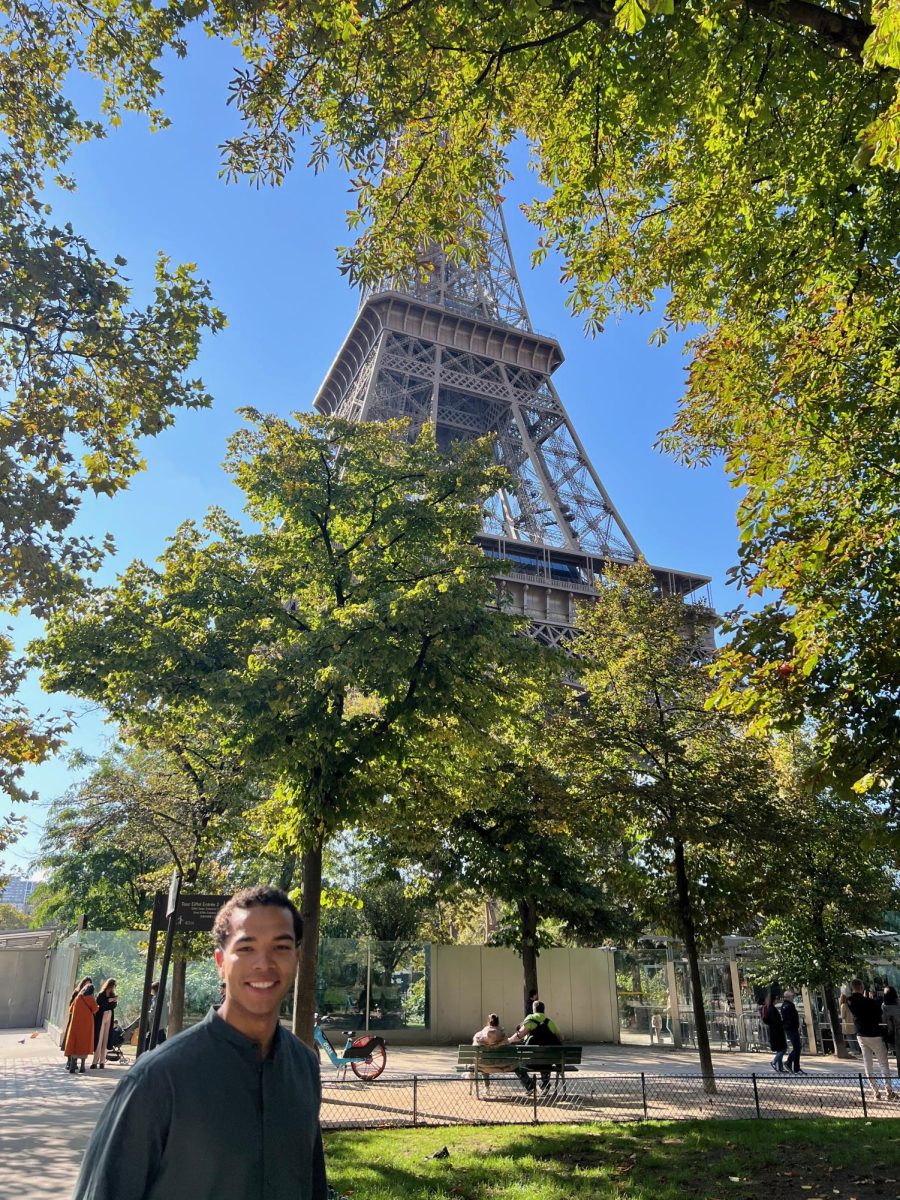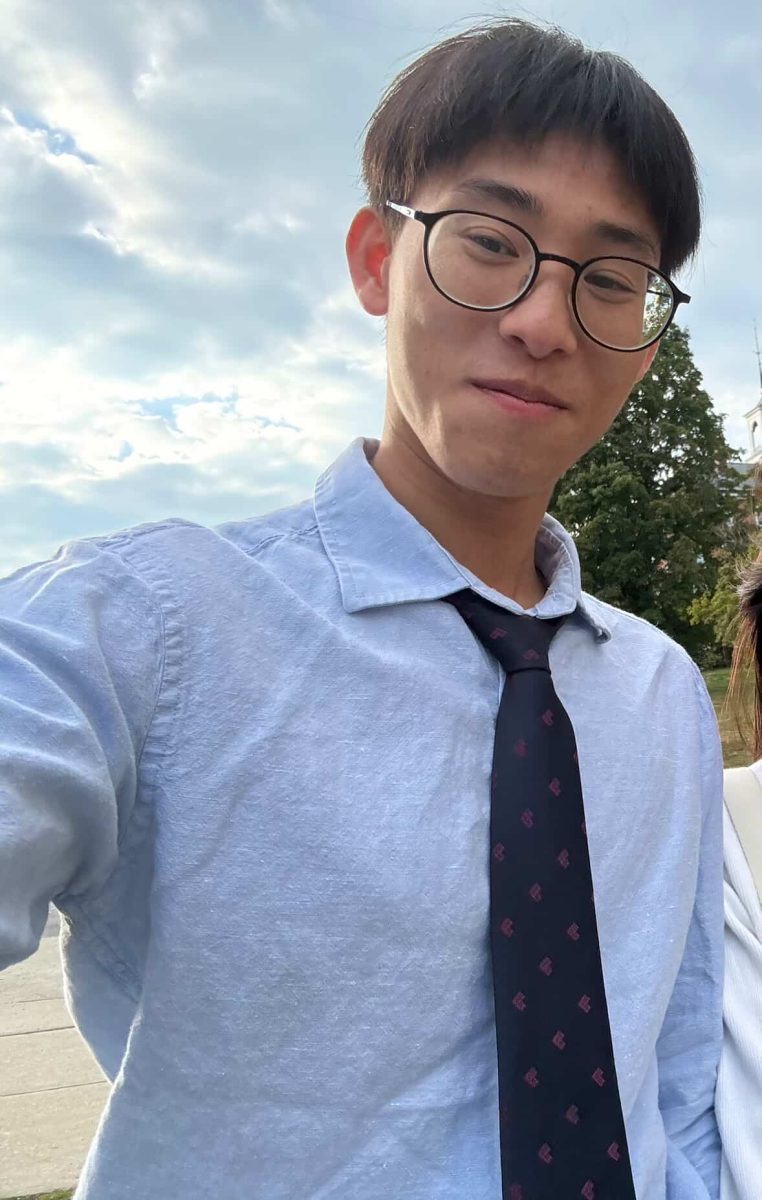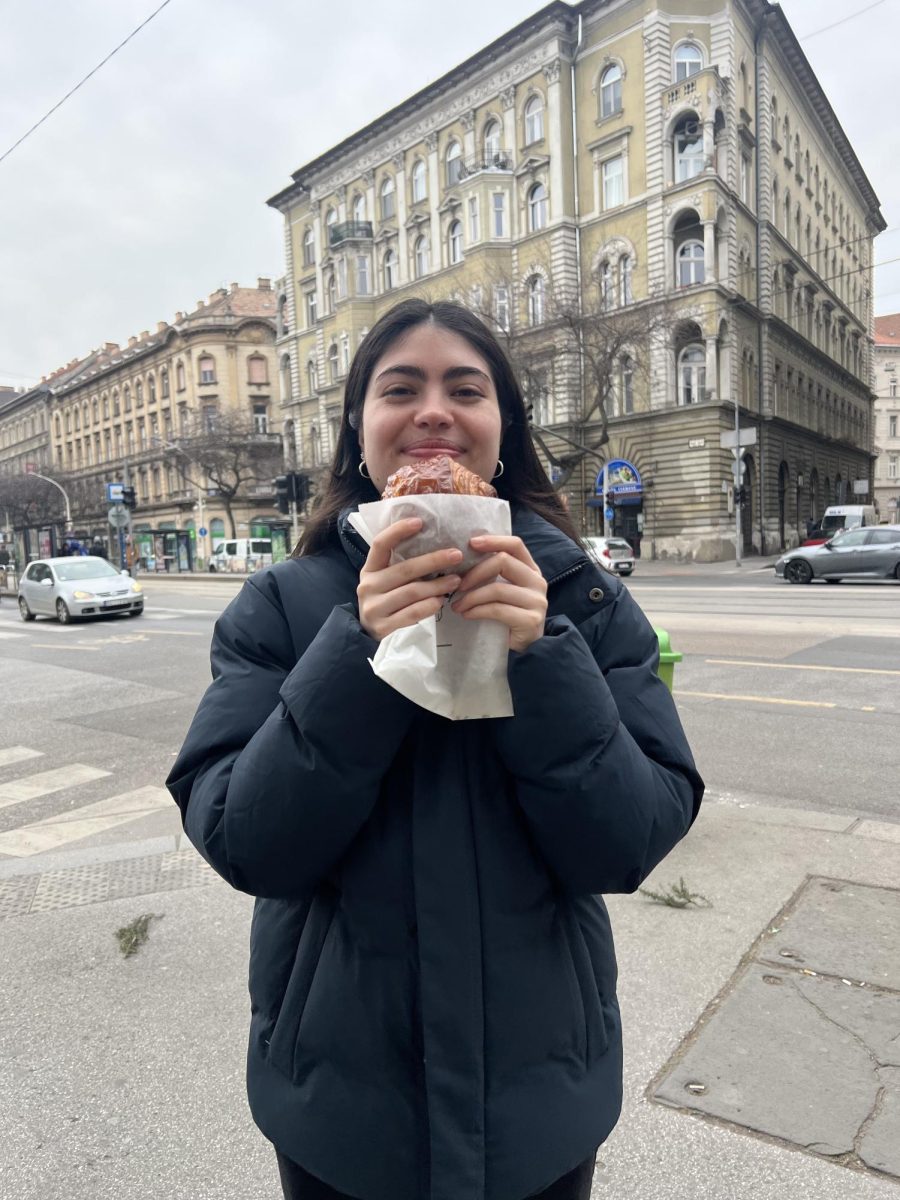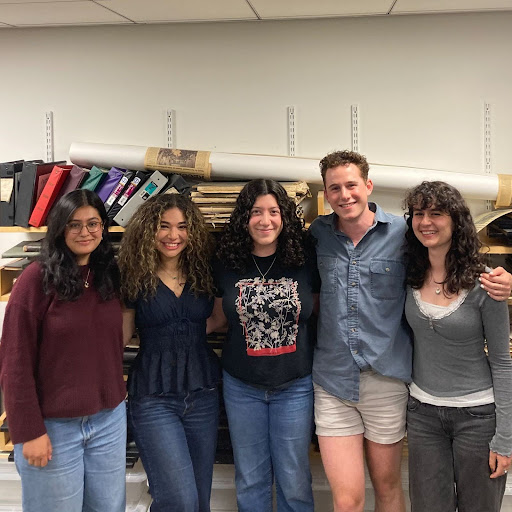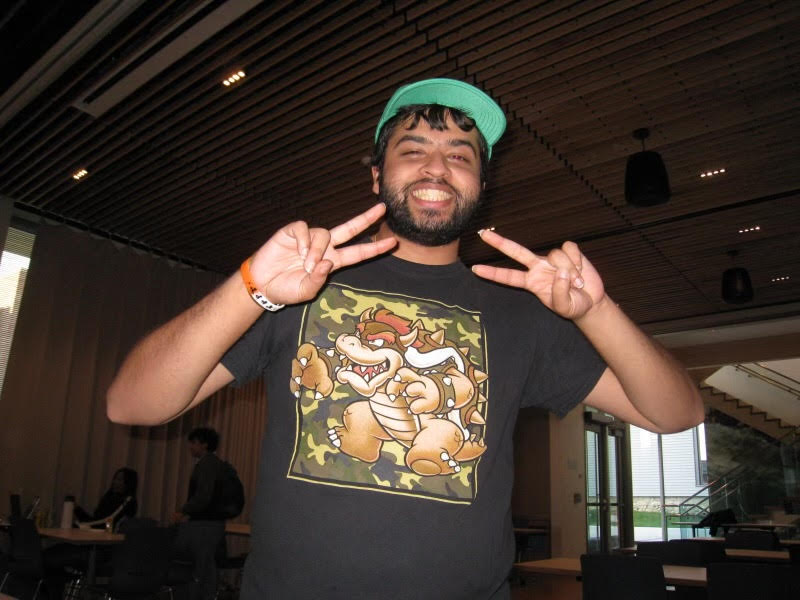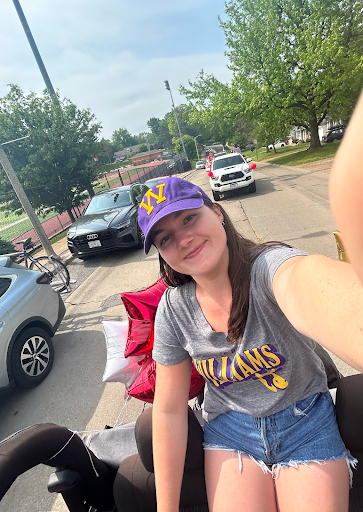
Each week, the Record (using a script in R) randomly selects a student at the College for our One in Two Thousand feature, excluding current Record board members. This week, Olivia Thurman ’27 discussed her early morning routine, the proper bagel-to-schmear ratio, and her decision to take a semester off of rowing. This interview has been edited for length and clarity.
Audrey Adam (AA): I know you’re an early riser. Tell me about your morning routine.
Olivia Thurman (OT): I normally get up at about 6 a.m. or 7 a.m., and I use the alarm sound titled “alarm,” which is based on the sound that war submarines let off when they’re going underwater. It shoots my resting heart rate from, like, 50 to 90 beats per minute. I then like to give myself about 20 minutes to get ready before I go to Goodrich [Coffee Bar] or Tunnel [City Coffee], and that’s when I like to get my work done until I have class. I really can’t function in class until I’ve been up for an hour and a half at least.
AA: Do you have a go-to breakfast for when you’re working?
OT: At Tunnel, I always get a small whole milk latte and a bagel with cream cheese. At Goodrich, I get a sesame bagel with the honey walnut [cream cheese], which might be too elaborate for some, but I eat that up.
AA: Do you have any opinions on the appropriate bagel-to-cream cheese ratio?
OT: Yes. Most of my family is from the East Coast, so they’re really big on the schmear. But when I’m eating a bagel, I want to be able to taste it. I don’t want the hole of the bagel to be covered in cream cheese. So I like a thinner layer — but not too thin. I just do not want to see my bite marks on my cream cheese. And some people will do that with butter too. Absolutely not.
AA: I know you’re a member of women’s crew and that you’re taking the semester off due to chronic migraines. Do you want to tell me a bit about that?
OT: Oh yes, my sabbatical. You never think you’ll be the person who’s a “medical mystery” — like the patient that doctors cannot heal — until it happens to you. I’ve been playing year-round sports since I was 8, and I’m someone who would go to practice with something like a headache and always leave feeling better, so I dove into freshman year really excited about the team and the sport. I think because of that I lost touch with how I was feeling physically and kept pushing myself too hard throughout last fall. Then things really started to fall apart around Winter Study when my pain got really bad.
Taking time off was just not a possibility for me — it was always in the back of my mind but never the forefront. But as I worked with my doctors over the summer when my pain got really bad — I was having a migraine every day — I was learning that I was putting my body through hell and potentially hurting my academics. I kept telling myself that this was normal, and that everyone deals with this, but I need to remind myself that’s just not the case.
AA: How has your health been since you took time off? What’s that experience like?
OT: The thing about chronic pain disorders is that they are invisible — it’s not like a torn ACL where everybody can see the damage — so you feel pressured to come back when you might not be physically ready. I got migraine botox in August, which I was skeptical about, and by the way, if you ever get botox, let me tell you that it hurts. But now I’ve had so many good days when I’m actually pain free, which is huge. It’s given me the opportunity to build back up with the help of my doctor and to finally operate above the threshold of being a normal student who can go to class and then get a meal with a friend and still have bandwidth leftover.
AA: What has it been like to be away from your team during this time?
OT: I try to be part of team bondings and dinners, but it’s really challenging because there are three hours a day where I’m not with the team during practice. It’s hard because I finally feel like I’m out of the fog and not just surviving, but I’m not ready to be fully back yet. It’s also just weird to think that some of my teammates don’t really know who I was two years ago when I wasn’t dealing with this amount of pain. Everyone’s been supportive, and I’m actually grateful that they don’t completely know what it’s like to be in my position because I wouldn’t wish the experience of chronic pain on anyone. So I’m glad nobody else has to go through that.
AA: Do you have a timeline for when you expect to be back?
OT: I’m being realistic and not taking the next step until I’m able to do an activity for five out of seven days. I’m hoping that in February, I’ll be ready to get back into the high-intensity of the sport, but for now I’m slowly making progress.
AA: That’s really awesome to hear.
OT: Yeah, and I’ve also found others going through it. We’re a small group, but I’ve found people online experiencing the exact same thing as me. Like, there’s someone at Harvard I know through TikTok — it’s kind of reassuring. My dad laughed at me, but I’m like, it’s nice to have a community.




